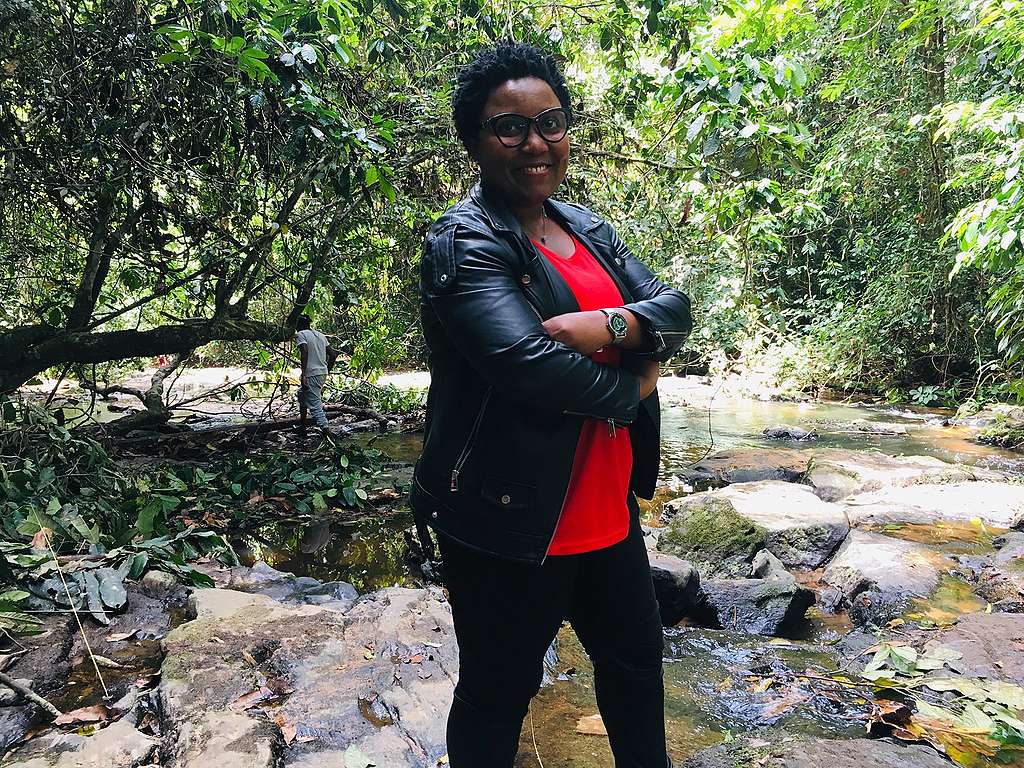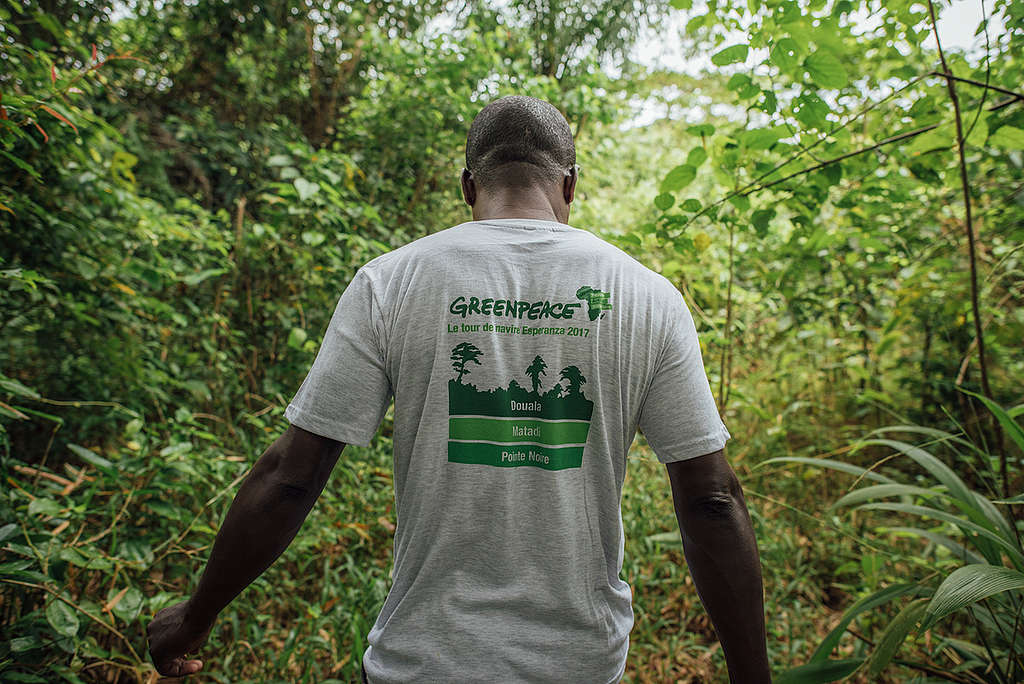
I started 2020 with a renewed sense of optimism. I promised myself to make the first year of the third decade of the third millennium a wonderful one, full of adventure, new experiences and learning. It was the year that my team and I agreed we would deepen our work on the ground with Cameroon’s indigenous communities to claim back their lands and their forest.
Then the COVID19 pandemic showed up. When the pandemic initially broke out, I was anxious about my family. I was worried for the most vulnerable people in Cameroon, who live hand to mouth. I was especially worried for the indigenous communities we work with.
One thought ran through my mind: “God, we are not ready for this!”. Cameroon is already facing many so many difficulties, from the Boko Haram insurgency in the northern area, through the so-called ‘Anglophone’ crisis in the northwest and southwest regions, to the capitalist system that exploits the poor and turns our forest into a commodity at the service of the vested interests of corrupt elites.
The early decision by Greenpeace Africa to shift to remote work had allayed some of my fears for myself. I am grateful for having the privilege to physically distance myself from others, while holding on to my job.
However, in Cameroon that privilege is rare. The majority of Cameroonians can’t afford protective equipment. They cannot afford to stay home during lockdown. According to the news site Business in Cameroon, 87 percent of companies and organizations have laid off employees due to COVID19 and others have been sent into indefinite unpaid leave. That is heartbreaking. How can so many people stay at home without the means to take care of their families? How do people manage to survive on a daily basis? This is bound to create more economic and psycho-social problems. Even for those with means, tests are scarce and expensive and hospitals are full. People are sent to die at home, not even included in the statistics of COVID19.
I also thought of our indigenous allies, such as the Baka people. Like us, they are afraid now. Unlike us, they have no masks, no hand sanitizers and many are feeding only on partial and false reports. This is true for indigenous people around the world, but it is especially true for those living in remote areas like Cameroon’s rainforest.
My second thought was “why are we facing all of this?”. All my life I have been observing how loggers and industrial agriculture businessmen have been trashing the rainforest. For years I’ve been active against their abuse of local and indigenous communities for quick profits. We’ve been promised time and again that if we destroy just one more forest, Cameroon would be developed. Even with everything we’ve taken from you, there still aren’t enough beds in our hospitals. Even those with loaded bank accounts have been struck by Coronavirus. So what was the point of destroying this precious ecosystem that so many of us love and depend on?
Not only did wrecking our planet and violating human rights not deliver the “development” we’ve been promised. It actually might have been one of the causes of this pandemic. Scientists have demonstrated that emerging diseases are often the results of encroachment into natural ecosystems and changes in human activity.
This plunder resembles a man cutting the hand of the mother who’s feeding him. Before I realized, tears streamed from my eyes: forgive us Mother Nature for all our wrongdoing. I can’t agree more with the UN’s environment chief, Inger Andersen, when she says Mother Nature is sending us a message. Professors Settele, Díaz and Brondizio and Dr. Dasza: “the single species that is responsible for the COVID19 pandemic is us”.
Carbon Brief analysis suggests the pandemic could cause emissions cuts this year of 2,000m tonnes of CO2 (MtCO2). That would still be far from what is needed. All over the world, air pollution levels are markedly lower. Must we really have a pandemic to reduce our CO2 emissions and get to breathe again?
If the COVID19 crisis does not open our hearts and minds to the changes we need, what will? What other crises do decision makers need to make the necessary choices for protecting our ecosystems?
The solution to COVID19 is not just implementing the measures dictated by the WHO. Humanity needs a multidisciplinary and systemic shift. It means protecting natural biodiversity habitats and forests at large. It also means putting an end to corruption and making business and government transparent. It means being humble about how we encroach on nature and the rights of indigenous peoples and acknowledging their role as the best guardians of the forest. It means making international cooperation substantial and not just for photo-ops.
My third thought is a prayer. It is a prayer that this crisis will end soon and that we will return to a new and improved kind of normality. If that happens, this pandemic will not just be remembered as a curse, but also as a lesson we must never forget.
I pray that Mother Nature would be giving us another chance to sow and reap new crops, which wouldn’t involve releasing massive levels of carbon dioxide into the atmosphere, toxifying our soil with chemical pesticides and fertilizers, or trashing intact forest landscapes and the homes of local and indigenous communities.
The single species that will be responsible for turning things around for the better would be us. I pray that 2020 will be the year when we start treating Mother Nature better, with the spirit of solidarity and responsibility that so many around the globe are rediscovering during this time.
We want a movement that stops illegal logging and deforestation in the green heart of Africa. Show your support for the Congo Basin. Take the pledge.
 Get Involved
Get Involved
